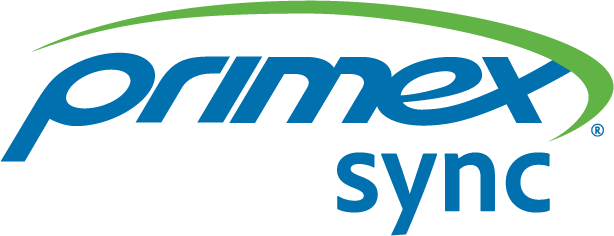Why Primex Sync
When planning your next build, Primex Sync Synchronized Timekeeping includes a wide clock portfolio, has complete, ready-to-use specifications that make your job easier, and experts ready to help.

Dependable, reliable solutions backed by a proven company with longevity and industry-leading service.
With 80+ years of proven stability, Primex delivers best-in-class solutions, seamless onboarding, and exceptional customer experience.

Complete, Ready-to-Use Construction Specifications.
Complete, detailed specifications for Primex Sync Synchronized Timekeeping, along with other Primex technology, are ready to be downloaded, copied, and pasted into your documents — no waiting required.

Engineered Solution with Guaranteed Coverage.
- Simply send your floor plan or blueprints to Primex
- A Primex engineer expertly reviews the plans
- You're provided with a personalized site evaluation document that outlines the technology necessary to provide your new build with wireless, guaranteed synchronized time

Dedicated Architect and Engineer Sales Experts
Dedicated Primex team members with years of experience working with architects and engineers are ready to find the right timekeeping solution that fits your plans or blueprints.


Contact Our Dedicated Experts Now
Your time is valuable!
Our knowledgeable and proven staff are standing by to discuss how Primex Sync can perfectly fit into your plans.
Proven Technology
Our proven, long-standing technology synchronizes time across campuses, hospitals, and facilities of any size — enhancing efficiency, reducing delays, and ensuring pinpoint accuracy. With automated daylight saving time adjustments and zero disruption, Primex Sync keeps organizations running on time, every time.


Specification Corner
Specifying Primex products in your next building project? The links below provide detailed project specifications that can be copied and pasted directly into your documents.

Wireless Solution Specifications

Radio
A high penetration 72MHz frequency talks to devices throughout a building or campus with the option to leverage GPS or NTP acquired time.

Bluetooth
Clocks form a Bluetooth® Low Energy mesh network to transmit status and receive NTP time and other updates from OneVue utilizing a bridge.
Wi-Fi
Built-in Wi-Fi connectivity allows for flexibility in clock location placement and facilitywide expandability. Simply access your existing IT network via Wi-Fi to quickly synchronize to the exact second.
Wired-Specific Solutions

Primex Sync PoE (Power over Ethernet)
Clocks connect to a facility's network via Ethernet to transmit data to and download settings from OneVue and to obtain time from the NTP server.

Bell Controllers
The web-based bell controller software allows users to set bell schedules for the entire school year or easily change schedules on an as-needed basis. It's designed to work with a school's existing PA or bell system, as outlined in the Project Site Conditions section.

Mass Notifications
For facilities looking to bolster communications and safety throughout their buildings or campuses, a Primex visual message board can display text at the push of a button.
Technology Information
The Primex Sync platform uses different time synchronization technologies to support a wide range of applications and installations:
RADIO
72MHz Technology

72MHz Transmitter provides a patented high-frequency signal to wirelessly communicate data to all of your synchronized clocks.
How is Synchronized Time Acquired?
Synchronized time is acquired through GPS or a Network Time Protocol (NTP) server.
How is Synchronized Time Distributed?
A patented 72MHz transmission signal wirelessly communicates data to all of your synchronized clocks within a building or throughout a campus. This range is made possible by three different wattage or transmitter power options for the OneVue Sync 72 MHz Transmitter.
Benefits of 72MHz Frequency
Since the 72MHz frequency is a much lower frequency option than other often used frequencies, signal interference risk from the transmitter to each clock is minimal. Also, the longer wavelength of the 72 MHz frequency means it can better penetrate solidly constructed building materials better than higher frequencies, ensuring clocks remain synchronized.
To work with your OneVue Sync 72 MHz Transmitter, our various styles and sizes of both digital and analog clock options ensure that you'll find the perfect clock for your facility.
BLUETOOTH
Bluetooth Low Energy

Sync Bluetooth is a cloud-based time synchronization platform.
How is Synchronized Time Acquired?
The OneVue Sync Bridge communicates with the cloud-based OneVue software, where it acquires time data through a Network Time Protocol (NTP) server.
How is Synchronized Time Distributed?
By leveraging Amazon Web Services Bluetooth Low Energy technology, a BlueTooth Low Energy Network is created, which establishes a solid connection between each Bluetooth clock within a facility and the OneVue Sync Bridge. Time data is then sent to each clock throughout the facility thanks to the previously created Bluetooth Low Energy network, ensuring perfectly synchronized clocks.
Benefits of Bluetooth Low Energy for Synchronized Timekeeping
The Bluetooth Low Energy Solution by Primex allows you to add as many Bluetooth clocks as you'd like to your facility, with each one seamlessly joining an existing network of clocks and OneVue Sync Bridges.
Does BlueTooth Low Energy Work Throughout an Entire Campus?
If needing to operate synchronize clocks throughout an extra-large facility or multi-building campus, Primex will help to ensure appropriate deployment of clocks and OneVue Sync Bridges to support the proper mesh of technology.
To work with your OneVue Sync Bluetooth technology, our various styles and sizes of both digital and analog options ensure you'll find the perfect clock for your facility.
Primex Sync WiFi
WiFi Clocks
WiFi synchronized clock technology provides schools with a reliable and efficient timekeeping solution by ensuring all clocks remain perfectly synchronized through the school's wireless network.
How Is Synchronized Time Acquired?
These clocks receive time updates from a central server, eliminating drift and discrepancies across classrooms, hallways, and common areas.
Additional Benefits
They integrate seamlessly with existing school networks, reducing installation costs and infrastructure requirements. By ensuring consistent and accurate time throughout the campus, WiFi synchronized clocks enhance scheduling efficiency, minimize disruptions, and support a well-organized learning environment.
Primex Sync also offers AC and PoE power connectivity options to fit any facility's requirements.


OneVue Sync PoE
PoE Network / IP Clocks

Power over Ethernet Network (PoE)/IP is a wired solution for facilitywide synchronized clocks.
How Synchronized Time is Acquired
Utilizing existing ethernet cable runs, Primex Sync PoE network / IP connects to your facility's network and acquires time data through a Network Time Protocol (NTP) server.
How Synchronized Time is Distributed
Primex Power over Ethernet network clocks receive time data from the NTP server while simultaneously sending data to and downloading settings and updates from the cloud-based OneVue software platform.
Benefits of Power over Ethernet / IP for Synchronized Timekeeping
There is no need for additional power source or batteries, as the cable that carries the time data to the clocks also carries power. Plus, you can rest assured knowing your synchronized clocks are running on a secured, wired connection.
To work with you OneVue Sync PoE/IP synchronized time platform, our various styles and sizes of both digital and analog options ensure you'll find the perfect clock for your facility.







